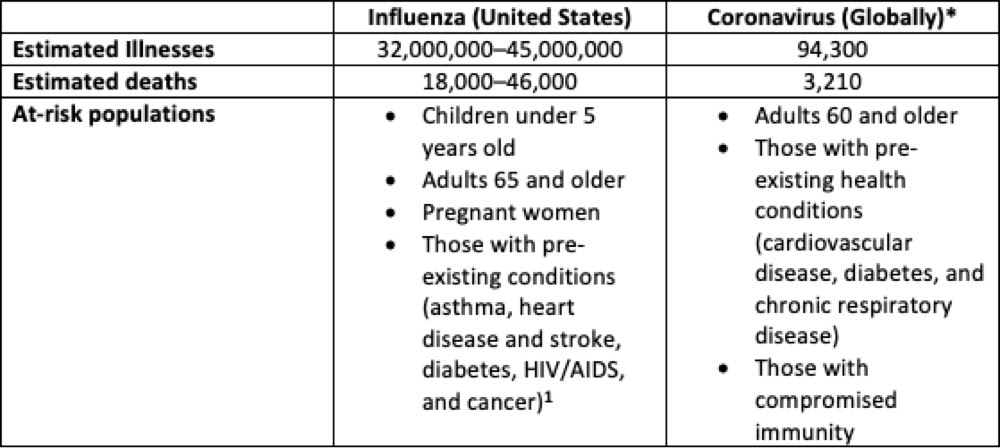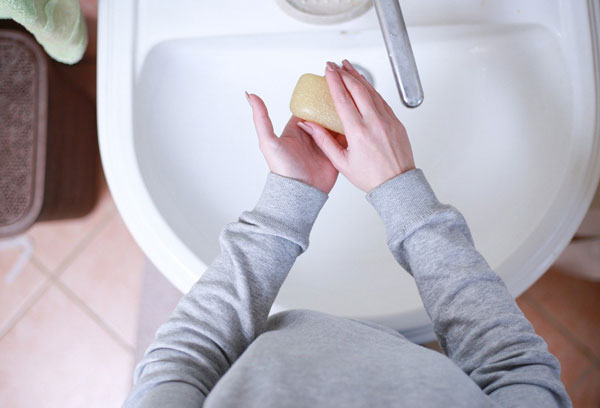Everyday the public-health concern about coronavirus (COVID-19) seems to grow.
What We Currently Know About Coronavirus
The coronavirus is a novel respiratory disease that has been spreading globally since late 2019. It presents a threat due to its newness, its contagiousness, and the lack of a vaccine or a clear treatment plan. The World Health Organization, the Centers for Disease Control and Prevention (CDC), the Public Health Agency of Canada, and local health officials are the trusted sources for the most accurate information, as well as updates on the status of vaccines and treatments (which are in development).
The coronavirus’s health risk to date appears to be comparable to that of influenza, which many of us have experienced. The CDC provides the following data about the preliminary burden estimates of influenza for the 2019–2020 season in the United States (October 1, 2019–February 22, 2020), which are contrasted with current burden estimates of coronavirus globally:

*Data updated as of March 4, 2020; Source: New York Times.
What Can Each of Us Do
Stay informed on updates from CDC. It’s important to process the considerable information we’re all receiving in a balanced and thoughtful way. With that in mind, worrying or panicking in response to the overwhelming amount of information can create stress in the body, which is known to compromise immunity. The CDC provides a comprehensive overview of “What You Should Know.”
Support your immune system. Some healthy habits that will support immunity to better fight and recover from illnesses, including coronavirus include:
- Getting plenty of sleep, ideally seven to eight hours a night,as it has been shown that sleeping less than 8 hrs can negatively affect immunity
- Eating nutrient-dense foods including known immune-supportive foods like high vitamin C containing foods
- Getting some movement in each day as has been shown to help with the production of more white blood cells, which can help combat bacteria and viruses
Good hygiene is the best prevention.
Good hygiene includes:
- Washing your hands frequently, and for at least 20 seconds with soap and water to protect yourself and others from germs.
- Covering your mouth and nose when coughing or sneezing.
- Keeping your hands away from your face, as germs easily spread when a person introduces the germs to their body by touching their eyes, nose, or mouth.
What is unique about coronavirus is that it may live on certain surfaces at room temperature for days and due to the symptoms being similar to those of influenza, it initially may be difficult to differentiate between the two from symptoms alone. If you think you may have symptoms of coronavirus, call your healthcare provider immediately.



